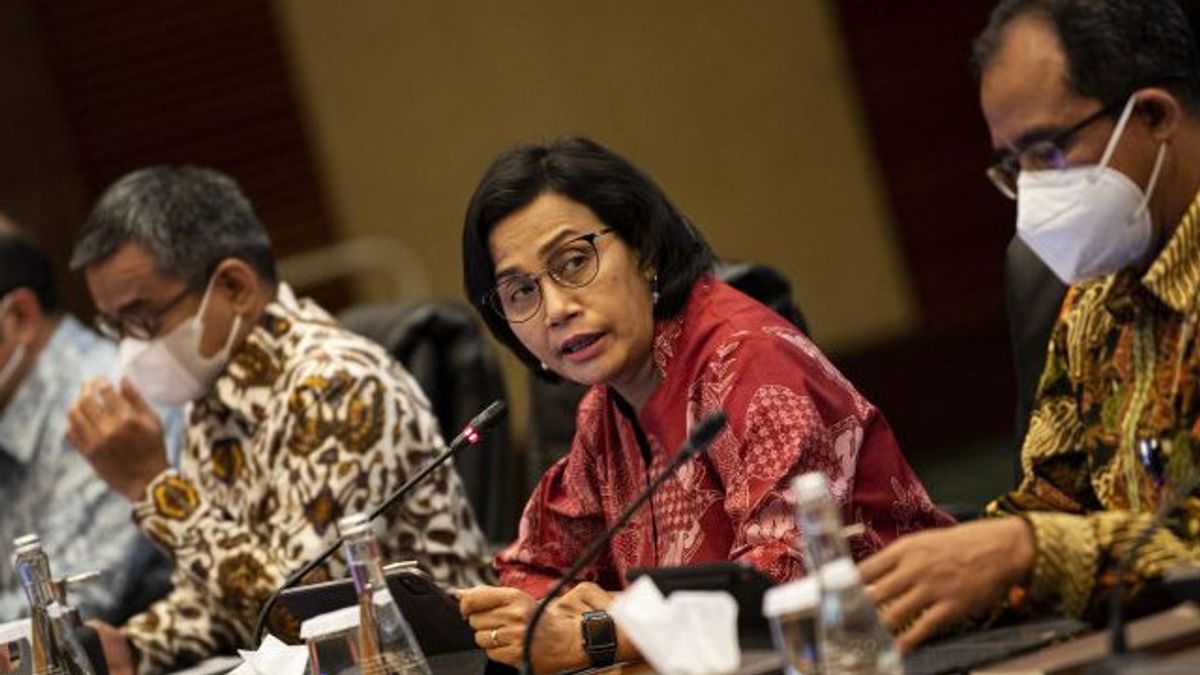JAKARTA - Currently, Indonesia's economic condition is considered to be under pressure due to external conditions that are still in an unstable position triggered by the Russia-Ukraine crisis, and the tapering policy carried out by the Fed and the soaring prices of a number of commodities.
The underlying assumption is the weakening of a number of macro indicators such as the rupiah exchange rate, JCI movements and inflation. There are even some who question the fiscal capacity and policies of the Government of Indonesia to contain the current economic turmoil.
Apart from this, there is good news that has escaped the attention of many economic observers. Based on data released by the Ministry of Finance (Kemenkeu), the 2022 State Revenue and Expenditure Budget (APBN) actually showed a positive performance during the January-February 2022 period.
Chief Economist of PT Bahana TCW Investment Management, Budi Hikmat said, based on data released by the Ministry of Finance, during the first 2 months of 2022, state revenues reached IDR 302.4 trillion or grew by 37.7 percent (YoY).
This state revenue represents 17 percent of the annual revenue target of IDR 1,743 trillion. Of course, this is a great achievement in the midst of this dynamic world economic condition and deserves appreciation.
"In terms of portion, one of the biggest contributors to state revenue is taxes with a value of Rp. 119.4 trillion," he said in a written statement, Monday, April 4.
On the expenditure side, it is feared that the increase in commodities, especially energy, will burden the state's finances, especially in terms of increasing subsidies. The increase in commodity prices does not necessarily pose a risk to the Government's fiscal posture if it is accompanied by an increase in state revenues.
"The increase in commodity prices does not always have a negative impact on state finances. For example, in 2021, palm oil, coal and base metals will account for 38 percent of Indonesia's exports and account for a trade surplus that is 4 times larger than the oil trade deficit. This also contributes to state revenue, especially the Non-Tax State Revenue (PNBP) component, which has the potential to grow by Rp. 8.5 trillion per month due to rising commodity prices," said Budi.
"In the first 2 months of 2022 alone, oil and gas income tax revenues have reached 28.6 percent of the annual target. This oil and gas income tax is quoted from oil and gas inflows," added Budi.
The continued increase in commodity prices is expected to improve Indonesia's fiscal posture. This will have a good impact on the projected budget deficit, which has the potential to thin out.
"Since the 2022 State Budget was passed last year, the component of government spending has barely grown this year. In other words, the engine of Indonesia's economic growth in 2022 is the private sector, no longer government spending. We estimate this is already priced-in in the market. share." said Budi.
"The stock market is actually enjoying the positive impact of rising global commodity prices, as well as its derivative sector, namely big ticket items such as property and automotive. And in our opinion, this is a good sign because the private sector is starting to move again," he added.
Meanwhile, the positive growth in state income was supported by commodity prices throughout 2021, resulting in an increase in excess funding or Budget Financing Remaining (SILPA) which can be used to fund urgent additional needs.
In addition, it was recorded that the accumulated Over Budget Balance (SAL) at the end of 2021 was IDR 333 trillion. This figure far exceeds the average SAL in previous years which was only Rp. 100 trillion. This also means sound management of state finances.
With continued high commodity prices, the realization of the APBN in January 2022 experienced a surplus, and contributed to SILPA of Rp. 25.9 trillion. This fiscal buffer is believed to be one of the components that the Government can use in controlling the inflation rate and Indonesia's economic growth if conditions are urgent.
"We see that inflation is still under control and the conservative economic growth target of 5.2 percent is still possible to achieve," he said.
"By looking at the position of the state budget, it can be said that our state budget is on track and the government will be able to make policies to respond to developments in the current situation. We see that the government has sufficient funds to intervene if needed. So we are optimistic about the ability of the Indonesian government in responding to current conditions," concluded Budi.
The English, Chinese, Japanese, Arabic, and French versions are automatically generated by the AI. So there may still be inaccuracies in translating, please always see Indonesian as our main language. (system supported by DigitalSiber.id)












